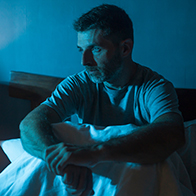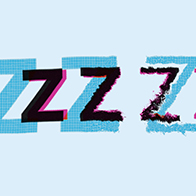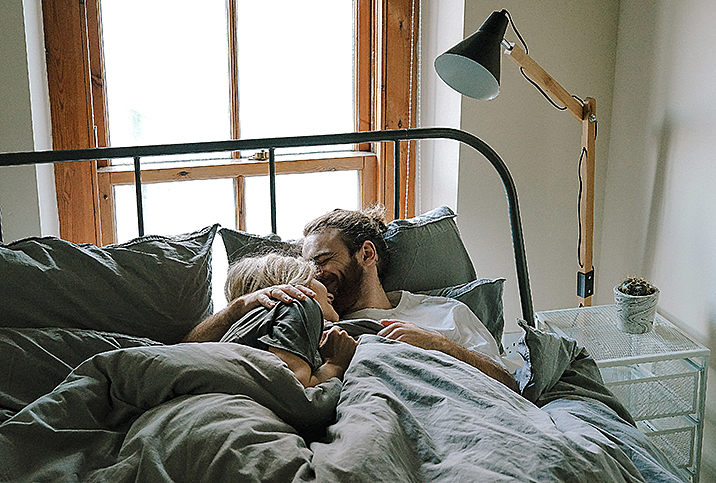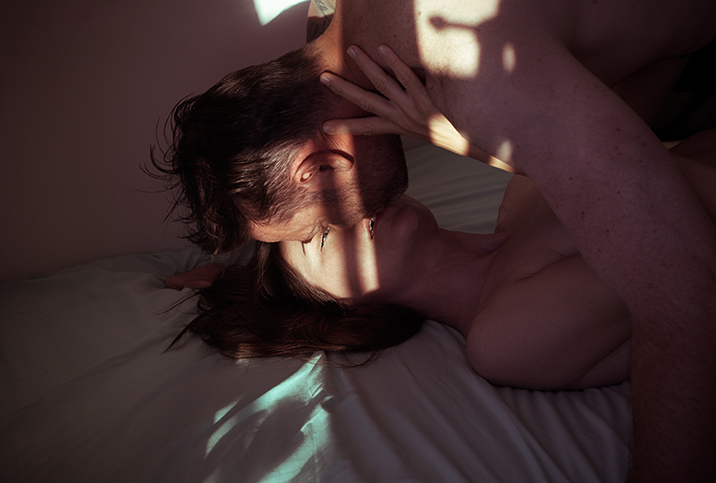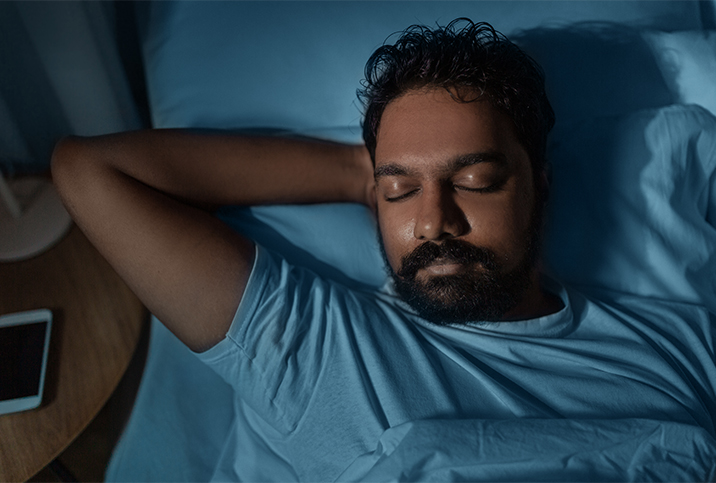Out of Sync: How Circadian Rhythm Disorder Disrupts Your Sex Drive
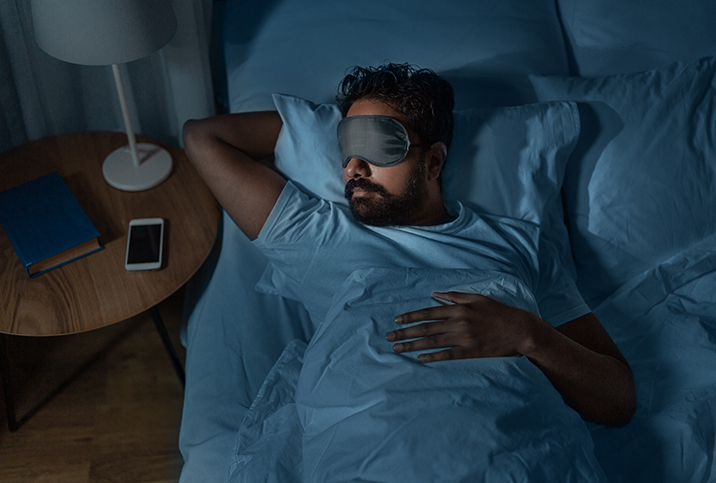
Why are humans asleep at night and awake during the day? As with so much of what "just seems natural," we can thank our genes.
Millions of years of primate evolution—including chilling in the trees at night to avoid nasty nocturnal predators—helped to hardwire our sleep cycle. The result is the circadian rhythm, an important part of how our bodies and brains react to the cycle of light and dark. It's so deeply embedded in human genetics that messing with the day/night sleep schedule can cause tremendous physical problems, such as weight gain, metabolic issues and premature aging.
One of those variances, called circadian rhythm disorder (CRD), can cause a couple of issues men may want to pay particular attention to: erectile dysfunction (ED) and low testosterone (low-T).
What is circadian rhythm disorder?
Sleep research has existed as a discrete discipline only for the past few decades. But one concept researchers have learned in this relatively short amount of time is the profound impact our planet's natural cycles of light and dark have on our sleep patterns and overall health.
When darkness begins to fall, our optic nerves send signals to a bundle of other nerves that acts as the master clock of our bodies. These signals trigger the release of melatonin and alert us that it's time for sleep. Light is, and has always been, the key.
"Your circadian system is extremely responsive to light," said Ellen Stothard, Ph.D., the research and development director at the multi-location Colorado Sleep Institute. "That's the primary signal that tells your body what time it is and syncs it with the environment. We have not found a single system where if you disrupt sleep, it's fine. Whenever we disrupt, it interferes with normal healthy functioning, from aging all the way up to death. If you do not sleep, you will die."
Stothard worked on a study that starkly illustrated how tightly bound our bodies are to the rhythms of the Earth's light/dark cycle. She and her team took a group of people to a wilderness area in Colorado to camp, depriving them of electric light for days or even a week at a time. The results were pretty remarkable. Over the course of camping for just one weekend with no electric light, the study's participants had their melatonin release shift by 1.4 hours. Another group that was sent out during the winter solstice, when days are shortest, experienced a 2.6-hour shift in when their melatonin was released.
"No one had ever looked at the effects of exclusively natural light," Stothard said. "People have looked at what electric lighting does to your biological clock, but no one had ever done the reverse. Basically, when you remove electric light, your body shifts to predict sunrise and sunset so that you can sleep in tune with that."
Disruption down there
The sun isn't the only thing that rises and falls with the rhythm of light and dark.
A 2022 meta-study published by the American Urological Association (AUA) suggested that erectile function and the production of testosterone are among the systems that can be affected by poor sleep.
Men with insomnia and sleep apnea had higher rates of hypogonadism—lower production of testosterone—and slightly higher rates of ED. Not good. Men with circadian rhythm disorder had significantly higher rates of both.
Beyond hormonal dysregulation directly causing sexual side effects, poor sleep can affect men's sexual function in other ways, too.
"Poor sleep may affect more than just one's hormones," said Alex Savy, a certified sleep science coach and founder of Sleeping Ocean, a platform based in Toronto that is dedicated to researching sleep and sleep products. "Lack of adequate rest typically causes low energy levels and tension, which can easily affect one's sexual performance. On top of that, sleep issues often increase one's stress levels. And aggravated stress, in turn, may increase one's chances of developing erectile dysfunction by triggering such conditions as high blood pressure, increased cholesterol levels, heart issues and alcohol overindulgence."
How to know if you have circadian rhythm disorder
Circadian rhythm disorder is defined as the inability to sleep at a desired time, but the condition differs from insomnia and sleep apnea in important ways.
"CRD occurs when there's a desynchronization between one's internal sleep/wake cycles and the light changes in the environment," Savy explained. "Insomnia is the inability to fall asleep or stay asleep throughout the night that doesn't always depend on the light and dark cycles. Sleep apnea involves breathing issues that typically cause sleep disruptions."
Diagnosing CRD may involve a sleep study, possibly while monitoring a patient overnight in a sleep clinic. They may be asked questions about their sleep habits and urged to keep a sleep journal for a month or more.
What can you do about CRD?
Working with a sleep expert or other healthcare provider is an ideal way to tailor a recovery program that suits your particular needs and goals.
Otherwise, a few tried-and-true tips can help with getting the right kind and right amount of sleep:
- Keep a consistent sleep schedule, even on weekends
- Develop a consistent bedtime routine
- Keep a regular meal schedule
- Avoid long, daytime naps (though Stothard said short ones are just fine)
- Limit your caffeine and alcohol intake, and be careful about when you take certain medications, especially close to bedtime
- Get regular exercise
- Manage your exposure to light, especially as bedtime approaches
It's a good idea to turn off all your screens at least 30 minutes before bedtime because light interferes with the natural release of the melatonin needed to fall asleep.
Everyone knows sleep is vital to staying healthy and happy, but only recently have we learned just how critical getting the right kind of consistent sleep is to avoiding a whole array of health conditions. If circadian rhythm disorder is a concern of yours, get evaluated before consequences manifest.







